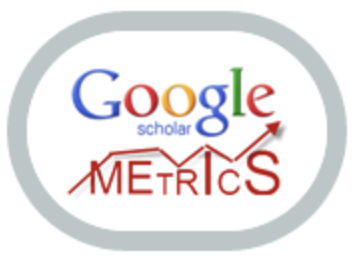The lecturer of Portuguese language and grammar teaching: licentiate and basic education in a circular perspective
DOI:
https://doi.org/10.29327/256399.8.1-1Keywords:
Lecturers’ formation. Portuguese language. Grammar teaching.Abstract
This article sets out to suggest reflections related to grammar teaching in basic and higher education from an interactionist perspective of the language, bearing in mind the need to align the various current grammar concepts with teaching practice. In this regard, it proposes certain contributions concerning grammar teaching from a productive and contextualized perspective, and it points out possible methodological steps that may contribute to wind down asymmetries existing between the theory and the teaching of Portuguese language on the lecturers' side. Such methodological steps are identifying grammar contents and their respective approach, referring to Official documents (PNCs and BNCC), and the contextual verification of former students from the BA in Letters who are lecturers. In this scene, the authors highlight the importance of a more dynamic and stimulant teaching to the student's basic formation, which, in its turn, could help redress the difficulties concerning grammatical teaching-learning of the Portuguese language.
References
ANTUNES, Irandé. Muito além da gramática: por um ensino de línguas sem pedras no caminho. São Paulo: Parábola, 2007.
AZEVEDO, J. A. M. de. Ensino de língua portuguesa: da formação do professor à sala de aula. Tese (Doutorado em Letras) – Centro de Ciências Humanas, Letras e Artes. Programa de Pós-Graduação em Estudos da Linguagem. Universidade Federal do Rio Grande do Norte, Natal, 260 p. 2012.
BAKHTIN, M.; VOLOCHINOV, V. N. Marxismo e filosofia da linguagem (1929). São Paulo: Hucitec, 1995. 7a ed. Trad. Michel Lahud; Yara Frateschi Vieira.
BRASIL. Parâmetros Curriculares Nacionais (PCNs). Língua Portuguesa. Ensino Médio. Brasília: MEC/SEF, 1998.
______. Base Nacional Comum Curricular (BNCC). Educação é a Base. Brasília: MEC/CONSED/UNDIME, 2017.
CAVALCANTE, M. M. D. Pedagogia universitária: um campo de conhecimento em construção. Fortaleza: EdUECE, 2014.
FONSECA, C. L. A. Novos paradigmas nos cursos de Letras e a formação do professor de língua portuguesa. Cadernos do CNLF, Rio de Janeiro, vol. XII, n.4, p. 112–120, 2008.
FRANCO, Maria Amélia Santoro. Pedagogia e prática docente. São Paulo: Cortez, 2012.
________. Práticas pedagógicas de ensinar-aprender: por entre resistências e resignações. Educação e Pesquisa, São Paulo, v. 41, n.3, p. 601–614, jul./set. 2015.
HALLIDAY, M. A. K.; MCINTOSH, A.; STREVENS, P. Ciências linguísticas e o ensino de línguas. São Paulo: Editora Vozes,1974. 1a ed.
GERALDI, João Wanderlei. O texto na sala de aula. São Paulo: Ática,1997. 2a ed.
PIMENTA, Selma Garrido. Formação de professores: identidade e saberes da docência. In: PIMENTA, Selma Garrido. (Org). Saberes pedagógicos e atividade docente. São Paulo: Cortez Editora, 1999, p. 15–34.
________. Prefácio. In: Pedagogia universitária: um campo de conhecimento em construção. Fortaleza: EdUECE, 2014.
PIMENTEL, C. S.; PONTUSCHKA, N. N. A construção da profissionalidade docente em atividades de estágio curricular: experiências na Educação Básica. In: ALMEIDA, Maria Isabel de; PIMENTA, Selma Garrido (Orgs). Estágios supervisionados na formação docente. São Paulo: Cortez, 2014.
TRAVAGLIA. L. C. Gramática e Interação: uma proposta para o ensino de gramática no 1º e 2º graus. São Paulo: Cortez Editora, 1997. 1a ed.
Downloads
Published
How to Cite
Issue
Section
Categories
License
Copyright (c) 2021 Ritacy de Azevedo Teles; Lázaro Rodrigues Tavares

This work is licensed under a Creative Commons Attribution 4.0 International License.
Authors who publish in this journal agree to the following terms:
a) Authors retain copyright and grant the journal the right of first publication. The articles are simultaneously licensed under the Creative Commons Attribution 4.0 International Public License (CC BY 4.0) which allows the sharing of the work with acknowledgment of its authorship and initial publication in this journal.
b) Discursividades journal offers immediate free access to its content, following the principle that making scientific knowledge available to the public free of charge provides greater global democratization of knowledge.






